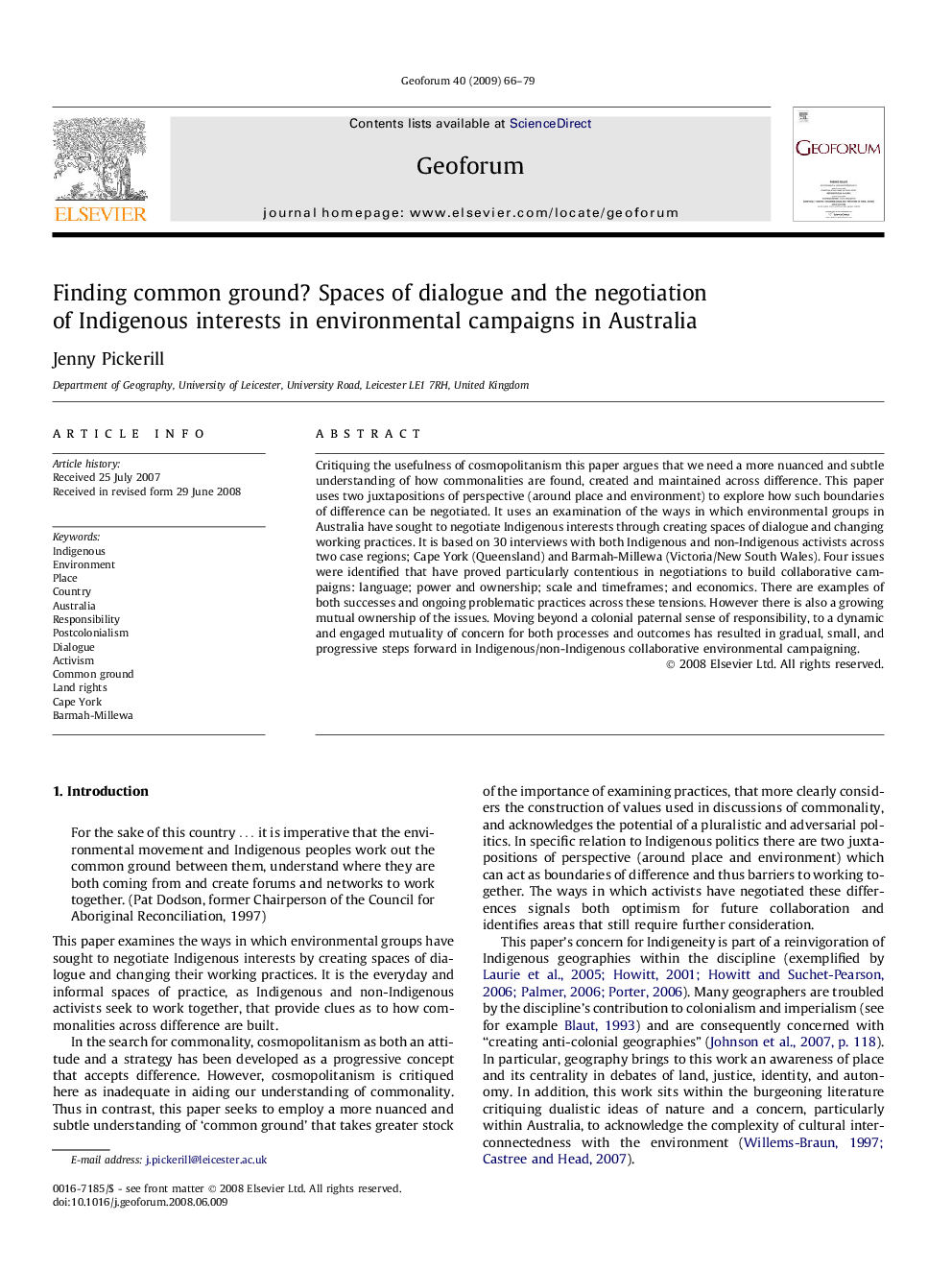| Article ID | Journal | Published Year | Pages | File Type |
|---|---|---|---|---|
| 5074748 | Geoforum | 2009 | 14 Pages |
Abstract
Critiquing the usefulness of cosmopolitanism this paper argues that we need a more nuanced and subtle understanding of how commonalities are found, created and maintained across difference. This paper uses two juxtapositions of perspective (around place and environment) to explore how such boundaries of difference can be negotiated. It uses an examination of the ways in which environmental groups in Australia have sought to negotiate Indigenous interests through creating spaces of dialogue and changing working practices. It is based on 30 interviews with both Indigenous and non-Indigenous activists across two case regions; Cape York (Queensland) and Barmah-Millewa (Victoria/New South Wales). Four issues were identified that have proved particularly contentious in negotiations to build collaborative campaigns: language; power and ownership; scale and timeframes; and economics. There are examples of both successes and ongoing problematic practices across these tensions. However there is also a growing mutual ownership of the issues. Moving beyond a colonial paternal sense of responsibility, to a dynamic and engaged mutuality of concern for both processes and outcomes has resulted in gradual, small, and progressive steps forward in Indigenous/non-Indigenous collaborative environmental campaigning.
Keywords
Related Topics
Social Sciences and Humanities
Economics, Econometrics and Finance
Economics and Econometrics
Authors
Jenny Pickerill,
